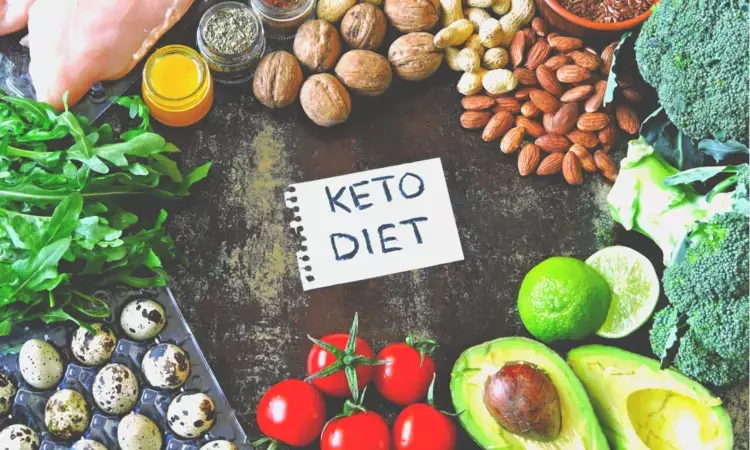- Home
- Medical news & Guidelines
- Anesthesiology
- Cardiology and CTVS
- Critical Care
- Dentistry
- Dermatology
- Diabetes and Endocrinology
- ENT
- Gastroenterology
- Medicine
- Nephrology
- Neurology
- Obstretics-Gynaecology
- Oncology
- Ophthalmology
- Orthopaedics
- Pediatrics-Neonatology
- Psychiatry
- Pulmonology
- Radiology
- Surgery
- Urology
- Laboratory Medicine
- Diet
- Nursing
- Paramedical
- Physiotherapy
- Health news
- Fact Check
- Bone Health Fact Check
- Brain Health Fact Check
- Cancer Related Fact Check
- Child Care Fact Check
- Dental and oral health fact check
- Diabetes and metabolic health fact check
- Diet and Nutrition Fact Check
- Eye and ENT Care Fact Check
- Fitness fact check
- Gut health fact check
- Heart health fact check
- Kidney health fact check
- Medical education fact check
- Men's health fact check
- Respiratory fact check
- Skin and hair care fact check
- Vaccine and Immunization fact check
- Women's health fact check
- AYUSH
- State News
- Andaman and Nicobar Islands
- Andhra Pradesh
- Arunachal Pradesh
- Assam
- Bihar
- Chandigarh
- Chattisgarh
- Dadra and Nagar Haveli
- Daman and Diu
- Delhi
- Goa
- Gujarat
- Haryana
- Himachal Pradesh
- Jammu & Kashmir
- Jharkhand
- Karnataka
- Kerala
- Ladakh
- Lakshadweep
- Madhya Pradesh
- Maharashtra
- Manipur
- Meghalaya
- Mizoram
- Nagaland
- Odisha
- Puducherry
- Punjab
- Rajasthan
- Sikkim
- Tamil Nadu
- Telangana
- Tripura
- Uttar Pradesh
- Uttrakhand
- West Bengal
- Medical Education
- Industry
Ketogenic diet promising treatment for stress urinary incontinence in obese women, study

China: In obese women, a ketogenic diet may be an effective method for treating stress urinary incontinence (SUI) in the future, a recent study in BMC Women's Health has stated. This provides a minimally invasive, highly compliant, and highly profitable treatment for stress urinary incontinence in women with obesity.
Stress urinary incontinence is a serious social problem that affects women's quality of life and restricts their daily life, particularly for obese women. The mechanism of stress urinary incontinence is not precise. In obese women, weight loss is the first line of stress incontinence treatment. The ketogenic diet is a special diet with low carbohydrates, moderate protein, and high fat that can lead to a faster reduction of body mass compared to the traditional diet. The therapeutic effect of a ketogenic diet on SUI in women with obesity is not nonexistent.
Wenpei Bai, Capital Medical University, Beijing, China, and colleagues described the case of five postmenopausal obese women diagnosed with mild to moderate stress urinary incontinence, which impacted their quality of life for medical treatment. They were given a ketogenic diet for four weeks. After four weeks of the diet, they found that the ketogenic diet can remarkably reduce body weight, improve urine leakage, reduce body fat percentage, decrease visceral fat area, and reduce body mass index (BMI).
"Findings from these cases indicate that a ketogenic diet can fastly reduce intra-abdominal obesity and body weight, thereby reducing intra-abdominal pressure and the motivation for SUI occurrence," the researchers wrote in their study.
"This is the first study on the therapeutic effect of a ketogenic diet on stress urinary incontinence in obese women. We found that the ketogenic diet can significantly reduce body weight, improve urine leakage, improve the proportion of body skeletal muscle, reduce BMI, and decrease visceral fat area."
They noted that the mechanism might be due to a decrease in abdominal pressure and restoration of the urthera's location. However, further research is needed to confirm its mechanism.
The study is observational, comprising 5 case reports, with a small number of cases, so there are some limitations. Through prospective randomized controlled studies, the researchers hope to verify the effectiveness of the ketogenic diet or treating stress urinary incontinence in the future.
"Our study revealed that in the future ketogenic diet may become one of the effective methods for treating stress urinary incontinence in obese women, providing a highly profitable, minimally invasive, and highly compliant treatment for SUI in obese women," the researchers wrote in their conclusion.
Reference:
Sun, Y., Chen, H., Bai, Y. et al. Ketogenic diet may be a new approach to treatment stress urinary incontinence in obese elderly women: report of five cases. BMC Women's Health 22, 402 (2022). https://doi.org/10.1186/s12905-022-01987-5
Dr Kamal Kant Kohli-MBBS, DTCD- a chest specialist with more than 30 years of practice and a flair for writing clinical articles, Dr Kamal Kant Kohli joined Medical Dialogues as a Chief Editor of Medical News. Besides writing articles, as an editor, he proofreads and verifies all the medical content published on Medical Dialogues including those coming from journals, studies,medical conferences,guidelines etc. Email: drkohli@medicaldialogues.in. Contact no. 011-43720751


